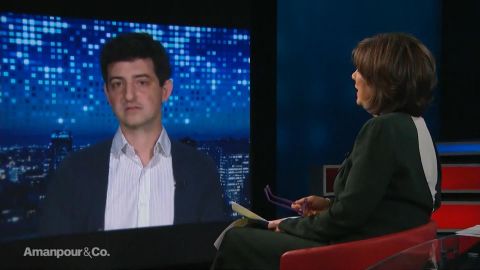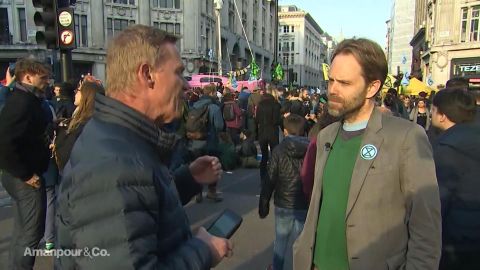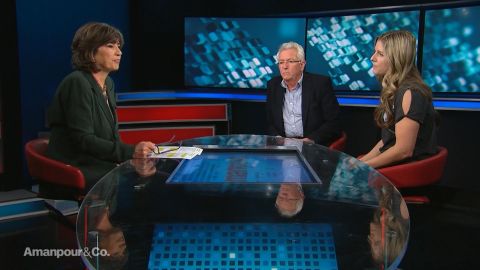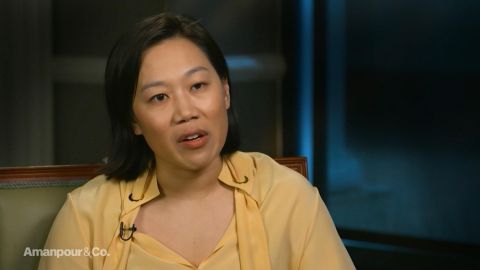Read Transcript EXPAND
MICHAEL HOLMES, CNN CORRESPONDENT: You know this city well, and to see Oxford Circus – one of the busiest intersections in all of London – blocked of for, what, seven hours now, completely blocked off, and not just Oxford Circus. Talking about Marble Arch, Parliament Square, Waterloo Bridge, and this extraordinary turnout, it’s been remarkably pleasant in terms of the atmosphere here. Very relaxed, and that includes the police as well who are staying well back, making no moves on this protest. Let’s give you a bit more of an idea of what’ behind this and what the aims are. I want to bring in Dr. Rupert Reed from the University of East Anglia – a spokesman for extinction rebellion. And doctor, first of all, tell me do you think this protest or protests like this could be a tipping point for action on climate change?
RUPERT READ, FORMER UK GREEN PARTY SPOKESMAN: Absolutely. We’ve got about 10,000 people out here today. This isn’t just a march. This is non-violent direct action. They don’t have permission to be here. We’re just blocking, shutting down big areas of Central London, and we’re going to be back tomorrow and the day after tomorrow and the day after that. This is a rebellion. We actually mean it. This is Extinction Rebellion. We are saying that the government is no longer legitimate because they are sending us down a path which will lead to the collapse of our society if that path isn’t righted within the not too distant future. So yes, I think it can work. It’s worked before in other countries. It’s brought down tyrannical regimes. This may not be a tyrannical regime, but it’s a regime that’s committing us all to destruction. That can’t be right.
HOLMES: Tell me — the thing that struck me about the protests here today is the youth. These are young people here. There are older people as well, but mainly vast majority young people. Speak to the role of youth in this movement. Just not — they’re fed up with the older people.
READ: Well, of course, the youth are the ones who are absolutely in the firing line here. I think they’ve all been so hugely inspired by the climate school strikes all around the world, and what they say – the young strikers on those demonstrations, they say, “save our world. Save our world.” Well, that’s what we’re trying to do here. We’re trying to step up and say, “yes, we’re going to try to work together to save this world — but you know, it’s not just them. I’m scared. I’m worried about their future, but I’m worried about my own future, too. I’m worried about your future. This is about all of us. Unless we get our act together within the next 18 months, then the U.N. Secretary General tells us we’re not going to make those targets that the U.N. say we have to make by 2030. And if we don’t do that, we’re all on the road to perdition.
HOLMES: Dr. Rupert Read from the University of East Anglia joining us there to give you a sense of the importance of how they see this unfolding. Christiane, the police, as I said, staying way back. They say they want to be here for days. They even say they want to be here a couple of weeks. It’s hard to imagine a place like Oxford Circus shut down for that long, and as I say, absolutely no move by police so far on these demonstrators.
AMANPOUR: Michael and your guest, Rupert, thank you so much.
About This Episode EXPAND
Christiane Amanpour speaks with Keith Scholey and Sophie Lanfear about the new show “Our Planet;” Michael Holmes and Rupert Read about protests in London; and Nathaniel Rich about the Republican Party’s climate denialism. Hari Sreenivasan speaks with Priscilla Chan about her latest projects, education reform, and paying more tax.
LEARN MORE



